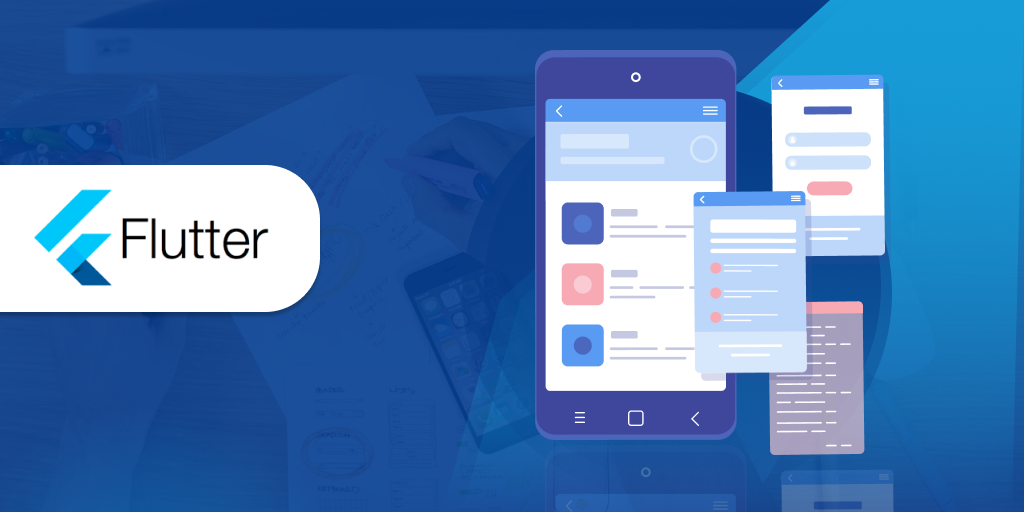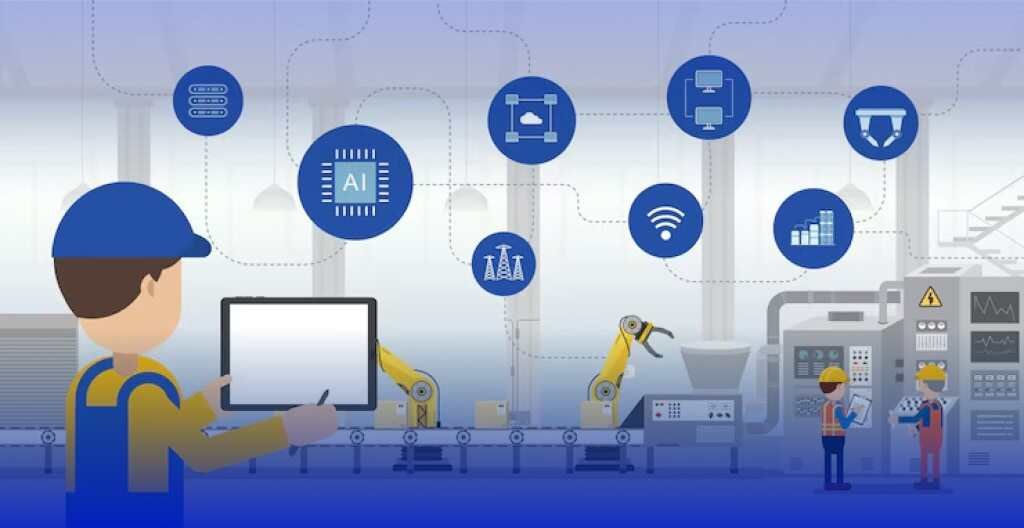Flutter is a popular choice for mobile developers globally. It has a large and friendly community that keeps growing as Flutter supports programmers in bringing their projects to mobile. Developed by Google, Flutter is a versatile solution, ranking as the second most popular cross-platform mobile framework.
In this guide, we’ll break down Flutter app development, offering insights into why it’s a preferred choice, what factors to consider while choosing Flutter app development services and how to build mobile apps with Flutter. Explore Flutter’s ease in crafting advanced mobile apps. Ready to learn? Keep reading for the guide.
Table of Content
Understanding Flutter: A Brief Overview
What is Flutter?
Flutter, an open-source UI software development toolkit, was crafted by Google. It enables developers to craft natively compiled applications for mobile, web, and desktop from a single codebase. The framework uses the Dart programming language, known for its efficiency and simplicity.
Key Features:
- Cross-Platform Development: Target both iOS and Android with a single codebase, saving time and effort.
- Complex UI Requirements: Flutter's customisable UI components are ideal for apps with intricate design needs.
- Performance-Critical Apps: Flutter offers native performance for demanding apps like games or multimedia.
- Rapid Prototyping: Hot reload feature enables quick iteration and experimentation.
- Limited Resources: Cost-effective solution with a single codebase, suitable for startups and small teams.

How to Get Started with Flutter?
Flutter offers rewarding mobile app development, prioritizing cost-effectiveness, efficiency, aesthetic design, and seamless user experience, the following key considerations will guide you in the right direction:
- Initiate Market Research: Before delving into the development phase, conducting thorough market research is paramount. Gain valuable insights into the current market landscape and analyze your competitors. By learning from their strategies and mistakes, you can formulate a superior approach for your Flutter app project.
- Identify Your Target Audience: Understanding your target audience is crucial in shaping the features of your Flutter app. Define the feature list for your Minimum Viable Product (MVP) based on your audience’s needs. Collect feedback and opinions from potential users to align your objectives with their demands, ensuring a higher rate of app installations.
- Collaborate with the Right Flutter Development Partner: Choosing the right Flutter development company is pivotal for creating a user-friendly, aesthetic, and intuitive app. Select a company with a proven track record in delivering exceptional app designs for an optimal customer experience. Ensure that the developers have the expertise to build your Flutter app, allowing users to navigate its functions effortlessly.
- Develop a Minimum Viable Product (MVP): Testing your Flutter application on target devices before its market release is crucial. Building an MVP with only the most essential features allows you to gauge the app’s potential success. Consider engaging a product development agency specializing in MVP development to guide you through the process and ensure a successful launch.
How Much Does It Cost to Develop Mobile Apps with Flutter?
Flutter is the most popular cross-platform framework, with 46% of developers worldwide using it, according to cleveroad research. This versatile framework has revolutionized mobile app development, providing seamless performance across multiple platforms. Its extensive community support and frequent updates make it a preferred choice for developers globally. However, the cost of developing a mobile app with Flutter depends on several factors, such as:
- App Complexity: Simple apps cost less than complex ones with advanced features, intricate designs, and extensive backend integrations.
- Design and User Experience: Investing in high-quality design and user-friendly interfaces can increase costs but improve the app’s success.
- Development Time: Complex features or unique functionalities may require more time to develop, leading to higher costs.
- Platform (iOS, Android, or Both): Developing for a single platform is cheaper than building a cross-platform app. Flutter’s advantage is its ability to create cross-platform apps, potentially reducing costs.
- Third-Party Integrations: Integrating third-party services, APIs, or databases may increase development time and costs.
- Testing and Quality Assurance: Comprehensive testing ensures app stability, adding to the overall budget.
- Post-Launch Support and Maintenance: Consider ongoing support, updates, and maintenance costs after launch for bug fixes, feature updates, and compatibility with new OS versions.
How to choose Flutter App Development Services?
Choosing the right Flutter app services is crucial for the success of your mobile app and it depends on certain factors like:
- Expertise in Cross-Platform Development: Ensure that the Flutter app development service has expertise in cross-platform development using Flutter. Look for a track record of successfully delivering high-quality apps for both iOS and Android platforms.
- Customization and Design Focus: Choose a service provider that emphasizes customization and design. The ability to create unique and visually appealing interfaces is essential for the success of your app. Look for a development team that understands the importance of a user-friendly and aesthetically pleasing design.
- Ongoing Maintenance and Support: Select a Flutter app development service that offers ongoing maintenance and support. This ensures that your app remains up-to-date with the latest OS versions and continues to perform seamlessly. Ask about their post-launch support services and the terms of maintenance agreements.
- Communication and Collaboration: Effective communication is crucial throughout the development process. Choose a service provider that values transparent communication and collaboration. Regular updates, progress reports, and a clear understanding of your project requirements contribute to a successful partnership.
- Development Process: Understand the Flutter app development process followed by the service provider. Enquire about their development methodologies, project management practices, and how they handle changes or unexpected challenges. A well-defined and organized development process contributes to project success.
- Security Measures: Discuss the security measures implemented by the Flutter app development service. Security is paramount, especially if your app handles sensitive user data. Ensure that the development team follows industry best practices for data protection and app security.
By carefully considering these factors, you can make an informed decision when choosing Flutter app development services.
How to Build Mobile Apps with Flutter App Development Services?
Here are the key steps to building a mobile app using Flutter:
- Setup Flutter Development Environment: Install Flutter SDK and configure your preferred IDE (e.g., Android Studio, IntelliJ IDEA, or Visual Studio Code) with Flutter and Dart plugins/extensions.
- Create a New Flutter Project: Use the Flutter CLI or your IDE to create a new Flutter project, which will generate the basic structure of your app.
- Understand Flutter Widgets: Learn about Stateless and Stateful Widgets, the building blocks of Flutter apps, and how to use them to create your app’s UI.
- Design the User Interface: Use Flutter’s rich widget library to design a responsive, visually appealing UI by arranging widgets hierarchically.
- Handle User Input and Interactivity: Implement user input functionality, like taps and gestures, and use event handling mechanisms to make the app interactive.
- Manage App State: Explore state management options such as Provider, Bloc, or Redux to effectively manage the app’s UI and data.
- Connect to Backend Services: Integrate your app with backend APIs or services using packages or specialized solutions like Firebase.
- Testing and Optimization: Write unit tests and use tools to ensure app reliability. Optimize app performance by minimizing rebuilds and expensive operations.
- Adapt to Screen Sizes: Ensure your app is responsive on various devices using tools like MediaQuery and LayoutBuilder.
- Debugging and Publishing: Debug your app using Flutter DevTools and prepare it for release by setting up app metadata, icons, splash screens, and publishing it to app stores.
- Implement Continuous Integration/Deployment (CI/CD): Set up automated pipelines for testing, building, and deploying your app seamlessly.
Summing Up!
Flutter stands out as a robust framework for cross-platform mobile app development, featuring powerful tools like Hot Reload and customizable widgets. Following this guide instils confidence in your Flutter journey, whether as an independent developer or one seeking professional support. Mastery of best practices and advanced concepts is crucial for crafting high-quality, visually appealing, and efficient mobile apps. Flutter app development transcends coding, focusing on creating seamless user experiences. Leverage Flutter’s flexibility to build attention-grabbing apps in today’s competitive market.
For assistance in the Flutter journey, trust Hutech to turn your vision into reality. Experience the power of seamless mobile interactions through our comprehensive flutter app development services, your trusted partner from the concept to post-launch success, ensuring brand elevation, user engagement, and staying ahead with exceptional solutions.
Contact us to begin your Flutter journey today!
Frequently Asked Questions
1) Do I need to learn a new programming language to use Flutter?
Flutter primarily uses the Dart programming language. While Dart might be new to some developers, its syntax is easy to learn, especially for those familiar with languages like Java or JavaScript.
2) How does Flutter handle performance, and is it suitable for high-performance apps?
Flutter delivers native-like performance, making it suitable for high-performance apps. It compiles to native ARM code and does not rely on web views or interpreters.
3) Can I integrate Flutter apps with backend services or third-party APIs?
Yes, Flutter supports easy integration with backend services, third-party APIs, and databases, making it versatile for various app functionalities.
4) What are the considerations for app testing and quality assurance in Flutter development?
Comprehensive testing is crucial for app stability. Flutter supports various testing approaches, including unit testing and integration testing, ensuring a robust application.
Ready to Advance your Digital Transformation?Get in touch with us.
Discover why Hutech is the right partner for your business.
MAIL US AT
sales@hutechsolutions.com
CONTACT NUMBER
+91 90351 80487
CHAT VIA WHATSAPP
+91 90351 80487
Humantech Solutions India Pvt. Ltd 163, 1st Floor, 9th Main Rd, Sector 6, HSR Layout, Bengaluru, Karnataka 560102

